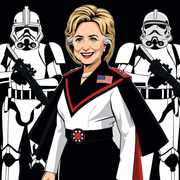|
Xerxes17 posted:There were cases when a German unit would surrender on the condition of being given ice-cream and other such things from what I remember of reading the latter parts of "Tigers in the mud" by Otto Carius. Tigers in the Mud is one of the few books I had to put down because it pissed me off that much. Carius jokes about loving warcrimes and is genuinely upset that Germans aren't more thankful for his service. Zero reflection or regret. He is an absolute facist shithole. I wouldn't take too much of it seriously.
|
|
|
|

|
| # ? Jun 7, 2024 14:29 |
|
Loskene posted:Why did the Germans carry out the Malmedy massacre? Did they not stop and think that 1) We'll be caught and punished because we are losing the war or 2) The Americans will become enraged and hate/want to kill us more? The Malmedy massacre was not really a decision by "the Germans." It was a decision by Jochen Peiper based on an interpretation of instructions from Hitler. Hitler had ordered that during the Battle of the Bulge the Germans should demonstrate their greater brutality in order to demoralize Western soldiers. Realistically, though, the Malmedy massacre occurred because the Germans were hardly well enough supplied to handle their own numbers for a prolonged campaign at this point. Kampfgruppe Peiper stumbled onto a lot of POWs in a short period of time, and was not able to transport them or move them or feed them or quarter them without significant taxation of their already meager resources. Feeding 80 extra soldiers even prisoners' rations was going to be a large effort, and in the middle of what was intended to be a rapid campaign they couldn't be slowed down by losing Kampfgruppe Peiper to guard duty. Peiper was an rear end, and decided to execute everyone. He didn't really give any shits in general (he had also give a no quarter and no prisoners order in Belgium) but in this case it seems mainly that in the desperation breakout attempt that was the Bulge they just didn't want to deal with POWs. The stopping and thinking for question one was probably "we're going to either win this charge and nobody will know, or die ourselves in the attempt, and besides how will they find out if we kill them all?" and on two the hope was that the Americans would get scared about how savage and brutal the Aryan soldiers are or some poo poo. Basically those two questions didn't matter as much as "the gently caress are we gonna do with 80 more mouths to feed, and how are we gonna fight with 80 prisoners in tow?" I do think that they did not at all anticipate the immediate consequence, which was that US boots on the ground started executing Waffen SS guys instead of taking prisoners, until a specific order was given to knock that poo poo off since we needed to interrogate them. As for "we'll be caught and punished?" Peiper and other members of his Kampfgruppe were not punished after the war. They were tried, found not guilty, and released. Peiper died in the 70s after being outed as a Nazi while living in France.
|
|
|
|
Malmedy really highlights how tame the western front was. In fact some of the German soldiers serving there had fought on the eastern front, where an event like Malmedy was so common it wouldn't have even been noted.
|
|
|
|
|
ArchangeI posted:Tigers in the Mud is one of the few books I had to put down because it pissed me off that much. Carius jokes about loving warcrimes and is genuinely upset that Germans aren't more thankful for his service. Zero reflection or regret. He is an absolute facist shithole. I wouldn't take too much of it seriously. Oh no doubt on that point at all. But understanding the bastard does not mean supporting/agreeing with the bastard. Know thine enemy, etc.
|
|
|
|
How much of the Gestapo carried on to the East German Stasi?
|
|
|
|
karl fungus posted:How much of the Gestapo carried on to the East German Stasi? Very little, if any. For the 'full-time'-agents they would not recruit former NSDAP party members. The Stasi was modelled after the NKVD and there was continuity with opponents of Nazi Germany. Many of guys setting up the service had been trained in the SU during the war, had fought as partisans etc. They would have no qualms about using former nazis and war criminals as "unofficial informants"(IM), though.
|
|
|
|
To what extent was the Holocaust justified by, or derived from, American eugenic practices? Have you read Claudia Koonz's Mothers in the Fatherland, and if so, what did you think of her work in terms of accuracy? Is it true that women, even high-level Nazis, generally received less attention in terms of denazification, and that more of them continued to hold stronger Nazi sympathies for the rest of their lives? Is is true that Czechoslovakia had the military forces, fortifications, and positioning to fight Nazi Germany basically to a standstill before the annexation? From what I've heard, the largest consequence of the Munich Agreement was that it devastated the morale of Czech leadership, who saw that France wasn't interested in honoring their treaty with them, and that the British weren't interested in getting involved, either. So, they surrendered to the occupation without a fight, which they actually could've won. I've heard that the Protestant churches were largely complicit with the Nazis from the start, while the Catholic Church grew increasingly hostile to it over time. Is that accurate? Hope you can answer some or all of these questions, thank you!
|
|
|
|
surf rock posted:Is is true that Czechoslovakia had the military forces, fortifications, and positioning to fight Nazi Germany basically to a standstill before the annexation? From what I've heard, the largest consequence of the Munich Agreement was that it devastated the morale of Czech leadership, who saw that France wasn't interested in honoring their treaty with them, and that the British weren't interested in getting involved, either. So, they surrendered to the occupation without a fight, which they actually could've won. Counter-factuals are always difficult, and military history counter-factuals always have a tendency to end up as giant nationalistic circle-jerks, but the Wehrmacht was a great deal less prepared for war in 1938, the Czechs had extensive fortifications in the Sudetenland, their military equipment was comparable to the rest of Europe at the time (some of it was actually superior to what the Wehrmacht used) and the territory was a lot less suited for mechanized warfare. So the argument could be made that they could have held out for quite some time in 1938, perhaps long enough for France and Briatin to enter the war. After the Agreement of Munich, they lost their fortifications in the Sudetenland, and their strategic position became a lot worse.
|
|
|
|
surf rock posted:I've heard that the Protestant churches were largely complicit with the Nazis from the start, while the Catholic Church grew increasingly hostile to it over time. Is that accurate? The way that I would put it is that the Catholic Church in Germany had a tradition of fraught relations with the German government that went back to the 1870s, so they were used to being at odds with the prevailing cultural and political climate. German Catholics also had a tradition of political activism through the Center Party and a variety of other organizations and associations; most of these were dismantled by the Nazis but people didn't just forget them. The Nazis also advanced certain policies like eugenics to which the Catholic Church was vehemently opposed, and those made the hierarchy poorly disposed towards the NSDAP from the start. Finally, the Catholic Church in Germany was ultimately responsible and loyal to the Vatican, which made it easier for them to resist compromising themselves. Religious Protestants, Pastors, and such were not necessarily any fonder of the Nazi regime than were Catholics. The famous antiwar activist Sophie Scholl was a devout Lutheran, for example. The difference was more that protestants were not as organized and lacked the institutional experience and international support network that the Catholics were able to draw on. It's also important not to exaggerate the extent to which the German Catholic Church opposed Nazism, because it didn't amount to that much.
|
|
|
|
Seven Hundred Bee posted:In early 1944 the advancing Allied forces in Italy captured airfields that would have allowed longrange bombers to reach Auschwitz in Poland. The debate in question is if, after this date, the US should have bombed the camp in order to prevent the extermination of the remaining Jews. Historiographically, this question was first posed by a historian named David Wyman in the early 1980s, and was extraordinarily controversial at the time. To add to this: 1. The films of the rail lines leading to Auschwitz weren't developed until after the war; they weren't considered important enough when there were factories and oil refineries still standing. Even the small I. G. Farben plant was too unimportant for a raid. 2. The USAAF bombed the factory adjacent to Buchenwald on August 24, 1944. They had perfect conditions- total air superiority, no clouds, warm weather, B-17s with Norden bombsights- and still managed to kill 315 prisoners and wound 1500 more. Strategic bombing was a messy affair back then. The Brits gave up on "precision" bombing entirely, and just firebombed entire cities. Germany never had a true strategic bomber- they used tactical dive bombers against London. Targets were often missed by miles- that's why it took thousand-bomber raids to accomplish things. Even the small bombload of a B-17 would have done far more damage if it was targeted effectively. 3. Jewish leaders, including David Ben-Gurion, didn't want Auschwitz bombed. Not only would bombing raids kill thousands of prisoners, it would deal the Nazis a propaganda victory. If the camps were bombed, the Nazis would claim the Allied bombing was responsible for the majority of deaths.
|
|
|
|
wikipedia posted:In reality, the day bombing was "precision bombing" only in the sense that most bombs fell somewhere near a specific designated target such as a railway yard. Conventionally, the air forces designated as "the target area" a circle having a radius of 1000 feet around the aiming point of attack. While accuracy improved during the war, Survey studies show that, in the over-all, only about 20% of the bombs aimed at precision targets fell within this target area.[148] In the fall of 1944, only seven percent of all bombs dropped by the Eighth Air Force hit within 1,000 feet of their aim point. In other words, precision bombing was kind of an oxymoron. You'd wind up personally killing more than you'd save.
|
|
|
|
DasReich posted:In other words, precision bombing was kind of an oxymoron. You'd wind up personally killing more than you'd save. Exactly. Without resorting to History Channel levels of dieselpunk wankery, there would have been no way to have results any other than disastrous. Bomber streams hitting the wrong city was commonplace in 1944. On a different topic, much of Hitler's success in keeping control of his subordinates was due to the fact that he didn't let people become indespensible. The fact that the regime naturally attracted sycophants helped. People would be given overlapping, if not outright duplicate responsibilities. Hitler would allow them significant discretion, but it was understood they served at his suffrance. They would both scramble to curry favour with the Fuehrer and screw their rival as much as possible
|
|
|
|
Sunshine89 posted:On a different topic, much of Hitler's success in keeping control of his subordinates was due to the fact that he didn't let people become indespensible. The fact that the regime naturally attracted sycophants helped. And oily bastards like Speer. The man could swim in a poo poo filled swimming pool and come out clean and smelling like roses. He attached himself to Hitler's rising star and ingratiated himself to the Fuhrer. He was also dangerously competent and had Hitler's ear in a great many things. If he had been in a position of power earlier I think life would have been much more difficult for the Allies
|
|
|
|
I watched a lot of stupid History Channel when I babysat and the kid was down for a nap. Is there any truth to the Lebensborn program, where selected Nazi men were paired with select women to add to more of the perfect Aryan race? What was Hitler's family doing when he started the rise to power, up until his fall? I think I read somewhere that he had several siblings, and for some reason his family took oaths never to have more children after the war was over, but that was again on the History Channel. What was Eva Braun's point in being in the bunker other than her worship for Hitler? Was there ever any evidence he had feelings for her or that he ever had a serious romantic relationship with her, or really anyone? Other than Oskar Schlinder, who else is remembered for saving people from the war machine, to the extent he did, or close to?
|
|
|
|
Cowslips Warren posted:What was Eva Braun's point in being in the bunker other than her worship for Hitler? Was there ever any evidence he had feelings for her or that he ever had a serious romantic relationship with her, or really anyone? Well they had been seeing each other even before Hitler became chancellor, and one of the final things both of them ever did in life(aside from suicide) was marry each other. I'd say yes, both of them did have feelings for each other. By the mid 1930's, Hitler could've had any mistress he wanted, but he stuck with Eva. It's a bit odd to think of Hitler as a lover sometimes, a bit odder to think of him as a literal lover. To quote a NYT book review quote:There is a 20-page diary fragment attributed to Braun, but Görtemaker, a cautious historian who never claims more for her subject than the evidence will bear, warns us that the diary may not be authentic. Still, she quotes an entry in which Braun mentions “two marvelously beautiful hours with him until midnight.” Eva Braun is weird for the simple fact of how human she makes Hitler. I recall reading about a letter she sent to her sister I believe, where she complained about the fact in private Adolf was so warm and sweet, but around people he had to always be "The Fuhrer" As to her point in being in the bunker, I want to say near fan girl devotion to Hitler, but at the same time if I had been dating someone for 14 years that I was madly in love with, I'd stay in a bunker with him.
|
|
|
|
Cowslips Warren posted:Other than Oskar Schlinder, who else is remembered for saving people from the war machine, to the extent he did, or close to? As it was difficult and unrewarding to hide anybody, and you could be rewarded for turning people in, you generally had to be a special type of person to be capable of doing it. Nechama Tec, in her When Light Pierced the Darkness, argues that those who sheltered Jews were generally social misfits, people who were outcasts for some reason or another. Only they could be unpersuaded by social pressures to turn people in. They didn't care about the approval of those around them, so could follow their conscience if they happened to have one. These sorts of people were often hermits as well, which made it easier since they lived out in the boonies. One town in France stands out for similar reasons: the Huguenot town of Le Chambon-sur-Lignon. Rural, hillbilly Protestants in a Catholic country, the townspeople had a long tradition of giving the rest of France the finger. This jibes with Tec's theory that those who acted contrary to prevailing social norms were more likely to be rescuers. There's also the Danish underground, which was tipped off by Werner Best, the German ambassador to Denmark, that there was going to be a roundup of all Jews in Denmark in 1943. At the beginning of the war Denmark had folded to Germany for entirely pragmatic, geographical reasons, and was rewarded with a "most favored subject" sort of status in which German police couldn't go around breaking down doors, local government still ran things, and so on. This allowed for a lot of Jews to be sheltered and eventually brought over to Sweden (officially neutral but supporting Germany in the early years, and then wavering toward the Allies by '43, at least enough to take in Jews). Best's motivations are still unclear - was he an ok guy, or just angling for Allied brownie points at a point where he knew his country was going to lose the war? Probably more the latter than the former in my opinion. Edit: D'oh, forgot Raoul Wallenberg. Swedish diplomat in Hungary who handed out fake Swedish passports to Hungarian Jews like candy. Eventually captured by the Soviets, who thought he was a spy, and died suspiciously in prison. Turned out much later that he really was working with the OSS, and that some of his financial support used to save Jews came from the US government. Kangaroo Jerk fucked around with this message at 04:35 on Apr 7, 2013 |
|
|
|
I had a grandfather who was drafted by the Nazis. He was in the Hungarian Second Army. I never heard the story from him, as he died when I was young, but apparently he was at Stalingrad and the army basically melted around him. He decided to walk back to Budapest, which almost killed him and damaged his memory somehow. He said ~this country blows~ and peaced off to NYC with his wife and his mother-in-law to become a high-end florist. Can anyone tell me what kind of stuff might have happened to him and his army group at Stalingrad?
|
|
|
|
|
Cowslips Warren posted:Other than Oskar Schlinder, who else is remembered for saving people from the war machine, to the extent he did, or close to? Although it is unclear how many people he saved (probably over 6,000) Chiune Sugihara tried to get Jews out of the way of the Nazi war machine. http://en.wikipedia.org/wiki/Chiune_Sugihara He was the Japanese vice-consul in Lithuania. When he realized what was going on he started giving visas to Jews to get them out of the way of the advancing Germans. He defied orders and allowed them to transit through Japan. At one point he was barely sleeping trying to get more people a way out of the country. When he was forced to leave there are stories that he threw blank visas with his signature out the window of the train he took, hoping they could be used to escape. Ended his diplomatic career. Xenocides fucked around with this message at 08:49 on Apr 7, 2013 |
|
|
|
WAMPA_STOMPA posted:I had a grandfather who was drafted by the Nazis. He was in the Hungarian Second Army. I never heard the story from him, as he died when I was young, but apparently he was at Stalingrad and the army basically melted around him. He decided to walk back to Budapest, which almost killed him and damaged his memory somehow. He said ~this country blows~ and peaced off to NYC with his wife and his mother-in-law to become a high-end florist. Can anyone tell me what kind of stuff might have happened to him and his army group at Stalingrad? http://en.wikipedia.org/wiki/Operation_Uranus http://en.wikipedia.org/wiki/Operation_Little_Saturn He was in an undersupplied and undertrained army that was at the spearpoint of an immense Soviet offensive. On the flanks of the German 6th army fighting in Stalingrad, there were the Romanian 4th and 3rd armies, the Italian 8th army, and finally your Grandpa's Hungarian 2nd. Here's a map with their general dispositions. http://upload.wikimedia.org/wikipedia/commons/3/39/German_Summer_Offensive%2C_24_July-18_November.PNG Basically, when the Soviets decide to finish the battle of Stalingrad, they ignored the 6th army that was entrenched in the city. Instead, they massed an enormous amount of supplies and men along the flanks of Stalingrad, and then unleashed this gigantic attack on the German-allied armies guarding the flank. The first stages of these attacks were directed at the Romanians, who get blown to pieces and pushed away from the city's flanks. They're annihilated. 300,000 men are encircled by the Soviets. At this point, your grandpa is still fine and his formation are still fine, as he's on the far edge of that operation. However, Uranus was planned in tandem with a further attack, Saturn, which was directed towards the axis armies still on the Don to the west of Stalingrad. Those were the Hungarians and the Italians. A month after the Red Army charged across the Volga, they do the same, but along the Don. There is no chance, neither the Hungarian nor Italian army possess the hardware to fight the Soviets, or the transport even escape. There are mass encirclements and total chaos, and both armies are obliterated. On the ground, this would have been terrifying as all hell. The Soviets open up their attack with a serious artillery barrage. As in, shells are saved up for weeks beforehand and an entire front's worth of artillery is carted around until the attack. This will go on for an hour, long enough that snow covered fields are blasted into muddy craters. Then the ground attack comes, and it's an entire division bearing down on the battered frontline. The attack is spearheaded by the Soviet armour, and nothing the Hungarians have will penetrate a T-34 or a KV-1. The Soviet infantry advance alongside them, armed with sub-machine guns, the whole mass is a deadly noisy avalanche of flesh and steel, shouting and shooting and rumbling as they approach. If you're a frontline soldier put up against this, you're hosed. I don't know what your grandpa did in the army, but it wasn't safe in the rear echelons either. This whole time there is Soviet artillery sighted towards the back lines, intended to catch retreating soldiers and also maim the cooks and mechanics. When the frontlines buckle, the Soviets don't stop either, so all those men and tanks are continuing to bear down through the entire army shooting as they go. So no matter where you were, there was death and chaos. Your grandpa was seriously a lucky one, over 80% of that army were taken as casualties during that one battle. I'd wager his memory problems might have been caused by some poo poo going down during the actual battle, and him only noticing during the way back. Yeah, so tl;dr it would have really sucked to be your grandpa back then, but I guess he was lucky to have gotten out of it alive at all. I'm sorry that he passed away before you could really talk to him about it. The story of the Eastern front is never a good one, but I think for the minor nations involved there, it was especially terrible. We don't get to hear much about their stories, and that's awful because the world really needs more stories about terrible wars. Edit: This question might have been better asked in the military history thread, unless you are specifically asking about atrocities? The Hungarians were quite complicit in their own deportations of the Jews and the Roma, but I don't know much about their actions on the front. Slim Jim Pickens fucked around with this message at 08:56 on Apr 7, 2013 |
|
|
|
Cowslips Warren posted:
Aristides de Sousa Mendes, a Portuguese consul in France during the WWII, issued tens of thousands of visas to people fleeing from the nazi persecution. He disobeyed direct orders from Salazar, Portugal's dictator at the time, and became an outcast after the war. http://en.wikipedia.org/wiki/Aristides_de_Sousa_Mendes
|
|
|
|
Xenocides posted:Although it is unclear how many people he saved (probably over 6,000) Chiune Sugihara tried to get Jews out of the way of the Nazi war machine. I'm very fond of this story, if only because of the contrast of a Japanese citizen doing all this for the Jewish population, when Japan was supposed to have been part of the Axis. It also forms a nice complement to that German diplomat that saved all those Chinese citizens during the sack of Nanking.
|
|
|
|
That German diplomat who tipped off the leader of the Danish Jewish community was personally involved with several Einsatzgupen massacres in the East to the tune of tens of thousands of killed. He alerted the Danes because his orders to purge Denmark of Jews were vague enough to allow him to just let them all run to Sweden. He did it because he was lazy and didn't want to spend the effort to arrange the shipments to Auschwitz.
|
|
|
|
As an example of Hitler's mastery of playing subordinates off each other, look at how he carved up Poland. The southwestern and northwestern (Reichsgau Wartheland and Reichsgau Danzig-Westpreussen respectively) parts were absorbed into Greater Germany; the eastern part (the General Government) was where Poles were to be deported to be worked to death. The General Government was controlled by Hans Frank with total brutality, and was the centre location not only of Poland's two largest cities, but also the major concentration camps. It was also where Poles expelled from the Reichsgaue were sent. According to Generalplan-Ost, it too would be settled after the remaining Poles were killed. The Reichsgaue were settled by Germans as early as 1939. As these were the Western parts of Poland, many families of German descent and racially-assimiable Poles and Balts lived there. The two Reichsstatthalteren (governors) had very different styles. Wartheland was under the control of Arthur Greiser, a particularly brutal SS man. In addition to being a virulent anti-Semite, he harboured a fanatical hatred for the Poles. He put great effort into getting as many Volksdeutsche settlers in his territory as he could. He also aided the SS extensively, and had strict requirements, such as a test of ancestry and knowledge of German to allow people to sign the Volksliste, the Germanization list. They were settled on farms that were confiscated from Poles expelled to the General Government. Still, some settlers weren't German enough; I remember watching a documentary in which one family complained that the "Germanized" family that lived next to them had a Polish name and spoke German with a thick accent. Greiser's opposite number was Albert Forster. Forster, although nearly as anti-Semitic as Greiser, had little time for obsession with Nazi racial policies. He believed them to be missing the point- the areas had to be Germanized quickly, and to this end, the inhabitants were Germanized in large batches. Instead of rigid tests, anyone who claimed to be of German descent and wasn't Jewish was allowed to sign the Volksliste. The alternative was to be thrown in a concentration camp or deportation to the General Government. This horrified Greiser, who complained loudly to Himmler. Forster brushed off Himmler, saying that it was his Reichsgau and he could do what he wanted. He already disliked Himmler, and now became openly contemptuous of him and Greiser. Greiser and Himmler both wrote to Hitler himself, and Hitler told them that if they had a problem with Forster, they had to work it out themselves. Forster then quipped "If I looked like Himmler, I wouldn't talk about race". Himmer and Greiser were stuck, there was nothing they could do without raising the Fuehrer's ire or oversteppping their responsibilities. They all met their fates accordingly. Frank was tried and hung at Nuremburg. Forster was tried in 1949 and hing in 1949; his wife last heard from in in 1947 and only knew of his death in 1954. Greiser was the last person to be publicly executed in Poland. Here's a great little interview with Niklas Frank, Hans Frank's youngest son. Niklas considered his father to be a murderer and stated that he would have turned him in if he was in hiding. Sunshine89 fucked around with this message at 06:52 on Apr 8, 2013 |
|
|
|
Shimrra Jamaane posted:That German diplomat who tipped off the leader of the Danish Jewish community was personally involved with several Einsatzgupen massacres in the East to the tune of tens of thousands of killed. He alerted the Danes because his orders to purge Denmark of Jews were vague enough to allow him to just let them all run to Sweden. He did it because he was lazy and didn't want to spend the effort to arrange the shipments to Auschwitz. Ha, I didn't know that bit. Doesn't surprise me in the least, though. Thanks.
|
|
|
Cowslips Warren posted:Other than Oskar Schlinder, who else is remembered for saving people from the war machine, to the extent he did, or close to? Pulling direct from Wikipedia: Wallenberg rented 32 buildings in Budapest and declared them to be extraterritorial, protected by diplomatic immunity. He put up signs such as "The Swedish Library" and "The Swedish Research Institute" on their doors and hung oversize Swedish flags on the front of the buildings to bolster the deception. The buildings eventually housed almost 10,000 people. Also this: quote:"...he climbed up on the roof of the train and began handing in protective passes through the doors which were not yet sealed. He ignored orders from the Germans for him to get down, then the Arrow Cross men began shooting and shouting at him to go away. He ignored them and calmly continued handing out passports to the hands that were reaching out for them. I believe the Arrow Cross men deliberately aimed over his head, as not one shot hit him, which would have been impossible otherwise. I think this is what they did because they were so impressed by his courage. After Wallenberg had handed over the last of the passports he ordered all those who had one to leave the train and walk to the caravan of cars parked nearby, all marked in Swedish colours. I don't remember exactly how many, but he saved dozens off that train, and the Germans and Arrow Cross were so dumbfounded they let him get away with it."
|
|
|
|
|
karl fungus posted:How much of the Gestapo carried on to the East German Stasi? A book I recently read about East Germany (unfortunately I can't remember the title) suggested that it was the West German intelligence services/government that had a fair few ex-Nazis (due to their experience in that kind of work and the need for it immediately post-war) and much anti-Western propaganda was made of this. If I can find the book, I'll give specific examples. Danger - Octopus! fucked around with this message at 17:26 on Apr 9, 2013 |
|
|
|
Danger - Octopus! posted:A book I recently read about East Germany (unfortunately I can't remember the title) suggested that it was the West German intelligence services/government that had a fair few ex-Nazis (due to their experience in that kind of work and the need for it immediately post-war) and much anti-Western propaganda was made of this. If I can find the book, I'll give specific examples. It's also important to bear in mind that Nazi Germany was fanatically anti-Communist. When Germany surrendered and the occupation was setup, within a few months the West realized that there was an impending conflict (and even confrontation) brewing between democracy and communism.
|
|
|
|
Danger - Octopus! posted:A book I recently read about East Germany (unfortunately I can't remember the title) suggested that it was the West German intelligence services/government that had a fair few ex-Nazis (due to their experience in that kind of work and the need for it immediately post-war) and much anti-Western propaganda was made of this. If I can find the book, I'll give specific examples. The book wouldn't happen to be "The General was a Spy", would it? Even if it wasn't, the story of Reinhard Gehlen is a pretty interesting one.
|
|
|
|
This might actually be the place to ask this. I acquired a set of WW2 Dot(?) Camo at my local surplus store. They were sold to me as reproductions because they arent sure if they are authentic or not. I'm not either, the price was pretty good even if it is repros. I'm curious on how about I could check to see if they are authentic or not? The parka has no stamping that I can tell, but the pants are stamped.    I can take more pictures, higher rez, ect if needed.
|
|
|
|
DasReich posted:In other words, precision bombing was kind of an oxymoron. You'd wind up personally killing more than you'd save. For the most part this is true. Strategic bombing during World War II was very inaccurate. However, there are some important exceptions to this axiom. With the right equipment, well-trained aircrew with specialized could hit small targets with pinpoint accuracy. Let's look at Operation Jericho, an RAF raid against a Gestapo prison in Amiens. Skimming the rooftops, RAF Mosquito bombers breached the prison's wall, freeing about 250 prisoners. Similar low-level raids were made against Gestapo headquarters in Copenhagen and Oslo, though to lesser effect.  So, bombing a concentration camp was feasible. Buchenwald, Bergen-Belsen and Dacahu were all in range of UK-based Mosquito squadrons. But would an attack have made any difference? Probably not. Even if the gas chambers had been destroyed, the guards could simply have shot or starved inmates. If rail netwroks had been destroyed, Jews would have been marched or trucked in. If the fences were breached, many prisoners would have been too weak to escape. Those that did flee would have been killed or quickly recaptured. Only a handful of prisoners escaped recapture after the Amien prison raid or the uprising at the Treblinka concentration camp.
|
|
|
|
Awesome thread, I have been binging pretty hard on ww2 stuff since the summer when I first watched BoB. Anyone know any stories about Nazi defectors that came out before the Germans situation was obviously hopeless?
|
|
|
|
How about the Hitler Youth? Was it really that big of a part of Nazi society, or do modern audiences just get hung up on the "ick" factor of brainwashing kids? How compulsory was membership? How big of a deal did it play in kids' general lives? How heavily did ideology actually factor in, or was it largely just a rebranded Boy Scouts?
|
|
|
|
TheUnforgiven posted:This might actually be the place to ask this. I acquired a set of WW2 Dot(?) Camo at my local surplus store. They were sold to me as reproductions because they arent sure if they are authentic or not. I'm not either, the price was pretty good even if it is repros. I'm curious on how about I could check to see if they are authentic or not? Ask in TFR, in the Milsurp thread. They know about all old war stuff, not just guns.
|
|
|
|
Can anyone write some words about how many Germans went to South America after the war? Which countries did they go to? Why? What kind of history was between Nazi Germany and Argentina/Brazil to allow such an exodus?
|
|
|
|
Bacarruda posted:
All true. If the Western Allies were to try to attack Auschwitz in this manner, the only plane capable of pulling it off was the Mosquito. Then, they would have had to sly across hundreds of kilometres of occupied territory at treetop level, bomb during daylight, and hope that there wouldn't be reprisals. Also, another unlikely person to help the Jews was Hermann Goering's younger brother Albert Goering. Albert was an anti-Nazi who helped several families escape Germany. He held a position as the export director of Skoda, in occupied Czechoslovakia. In this position, he forged his brothers' signature on exit documents, sent people on "business trips" that allowed them to escape, and sent trucks to concentration camps, had them filled with prisoners, and had the trucks let off the prisoners in isolated areas. Whenever his often brazen activities threatened to get him in trouble, he relied on his brother's name and influence. He died in modest circumstances and single in 1966. A week before his death, he married his housekeeper so she could receive his pension.
|
|
|
|
Have you read Bloodlands: Europe between Hitler and Stalin by Timothy Snyder? I'm reading it right now. What do you think of it, if so? Some interesting takeaways so far:
shwinnebego fucked around with this message at 20:53 on Apr 10, 2013 |
|
|
|
Without quibbling about details, it's true that World War II wasn't a simple matter of "Nazis bad, Soviets good until May 9, 1945" That's an issue that affects me personally. My grandfather on my mom's side was born in 1915 in what was then the western reaches of the Russian Empire to a Polish speaking family. His village (I don't know what it was called or where exactly it was; he died when I was 13 so I never got a chance to ask) was located within the 1918 borders of Poland, and would now either be very close to the border, or within Belarus or Kaliningrad Oblast. The Polish he spoke used a lot of Russian words and phrases mixed into it. My grandmother was born to a Polish family in Lwow (now Lviv, Ukraine) when it was part of Poland. Both were initially invaded by the Soviets. In the Southeast, the territory was declared to be part of the Ukranian SSR, and Poles were expelled, or sent to work camps. In the northeast, things were worse. These territories were lost by the Russian Empire, and succeeding Soviet Union to the Poles, and this was enforced by the Treaty of Versailles. The Soviet Union lost more territory to Poland in the Polish-Soviet War. The Soviet invasion was absolutely brutal. The Soviets were not signatories to any combat conventions, so they simply shot the officers and sent the enlisted soldiers to forced labour in either the newly-occupied territory or Siberia. Then, the NKVD swooped in to try to destroy any chance of a Polish uprising. In the Katyn Forest Massacre (which the Soviets blamed on the Nazis) alone, 20 000 Polish intellectuals, officers and clergymen were massacred. Anyone that had even the slightest bit of education or ability to lead or inspire an uprising raised suspicion, and was killed or imprisoned if they could be captured. There were massive deportations, up to 300 000. Prisoners of war were shot or worked to death. Ordinary citizens were arrested for any reason or no reason. "Former Poland" was now considered to be part of the Soviet Union, except for Wilno, which was transferred to Lithuania, and subsequently re-occupied in 1940. My grandfather was arrested by the NKVD, the excuse given was that he was an "antisocial element". He escaped westward, and spent the duration of the war trying to avoid arrest by the Nazi occupiers. My grandmother fled in advance of the Soviet invasion, and when the Nazis invaded, was forced to work in a munitions factory. They met in a transit camp, and left Kiel for Canada in early 1948. The Soviets and Nazis both viewed Poland as theirs for the taking, and tried to destroy the foundations of Polish culture. This happened in Ukraine and the Baltics too. Here, the Soviet occupation was so brutal, the populace welcomed the Nazis as liberators. Then, the racially assimiable parts of the population were encouraged to form "auxiliary police forces" settle score with their Jewish and more obviously Slavic neighbours. Then, they would serve as meatshields on the Eastern front and do the duties that disgusted even the SS until they too outlived their usefulness to the Reich. The Soviets, by and large, were not as organized, but they still shot anyone they saw as a threat and imprisoned in labour camps anyone they thought useful. Stalin harboured a particular hatred for the Poles and Ukrainians who resisted his collectivization policies, and the Jews, who he referred to as "rootless cosmopolitans" and part of the capitalist banking cabal. It is true, however, that most victims were simply shot and dumped- it was the easiest and most brutal way, and left the least evidence. It's a case of two awful regimes, one marginally less murderous (and directed its murderous impulses largely inward). Waroduce posted:Can anyone write some words about how many Germans went to South America after the war? Which countries did they go to? Why? A good part of it was that there was no way to catch every Nazi, and with fear of Communism being so prevalent, the international community didn't put too much focus on catching escaped Nazis. The big four all commit suicide, most of the leadership of the military and government were either hanged or imprisoned, and others still were able to downplay the extent of their crimes. Furthermore, Brazil had a right-wing government in the early postwar period, one the western powers weren't keen to piss off potential allies with the communists already being such a problem. Sunshine89 fucked around with this message at 23:05 on Apr 10, 2013 |
|
|
|
Had Manfred von Richthofen aka the Red Baron survived WWI, what sort of role do you think he would have had in Weimar and eventually Nazi Germany? I imagine he would have been something similar to a Rommel figure; glad to fight and lead, but totally dissociated with the Nazi party. There's no doubt that if he were to have remained in the military, he would likely have had Goering's role as commander of the Luftwaffe. Do you think Goering's role in the government would have been significantly diminished?
|
|
|
Jedi Knight Luigi posted:Had Manfred von Richthofen aka the Red Baron survived WWI, what sort of role do you think he would have had in Weimar and eventually Nazi Germany? I imagine he would have been something similar to a Rommel figure; glad to fight and lead, but totally dissociated with the Nazi party.
|
|
|
|
|

|
| # ? Jun 7, 2024 14:29 |
|
I guess part of the hypothetical is where does Goering fit in to post-war Germany if he were never appointed to commander of JG 1. I don't know if would have had as much recognition following the Nazi rise to power regardless of any "in" he might have been able to attain with Hitler. And others have said in this thread, he was a very incompetent air strategist. Von Richthofen's got cred. Von Richthofen was a pretty major national hero as well, so it's hard to imagine him getting "riddled with bullets" on the street without some very major repercussions for the Nazis were they to be responsible for it. It's just really hard to judge what he might've done after the war as the Luftsreitskraefte was completely dismantled. Sure, Ernst Udet was a pretty major ace and did some stunt flying (as did Goering), but von Richthofen was always more about hunting rather than flying, and politics were definitely not his thing as evidenced in his letters while visiting Vienna during the war. But maybe he wouldn't have had any other choice.
|
|
|































